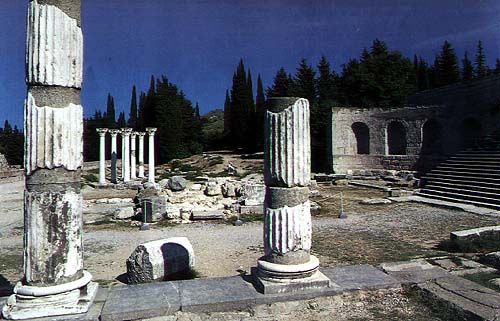 |
A historical flashback
Inhabited since prehistoric times, Kos, like Rhodes and the other Dodecanese, has known periods of great prosperity but also times of great hardship over the centuries. During the Mycenaean period (15th - 12th century B.C.), the island was densely settled and took part in the Trojan War. In the 7th and 6th century B.C., it was the sixth city-state--along with Halicarnassus, Knidos, Lindos, Ialyssos and Kameiros--in the Dorian hexapolis.
 |
Alter the end of the Persian Wars it became a member of the First Delian or Athenian Confederacy. The teaching of Hippocrates (467-357 B.C.) and the founding of the new city of Kos (366 B.C.) marked an important milestone in the history of the island, which by the fourth century B.C. had become one of the most powerful maritime and trading powers in the Eastern Mediterranean. It also flourished during the Hellenistic period--under the Ptolemies of Egypt-whence the ancient saying "they could feed neither Kos nor Egypt", equating its prosperity with that of the fabled land of the Nile. In the 2nd century A.D., however, Kos fell under the sway of Rome and sank into obscurity.

The long centuries under Byzantine rule were beneficial to the island, but by the 11th century, it was under constant threat from Saracen and pirate raids before passing into the hands of the Venetians, the Genoese and, eventually the Knights of the Order of St. John in 1315. In 1522, the Turks finally conquered it after a series of unsuccessful attempts. The Turks held it until 1912, when the Italians occupied it and the other Dodecanese, and Kos did not become united with Greece until 1947.